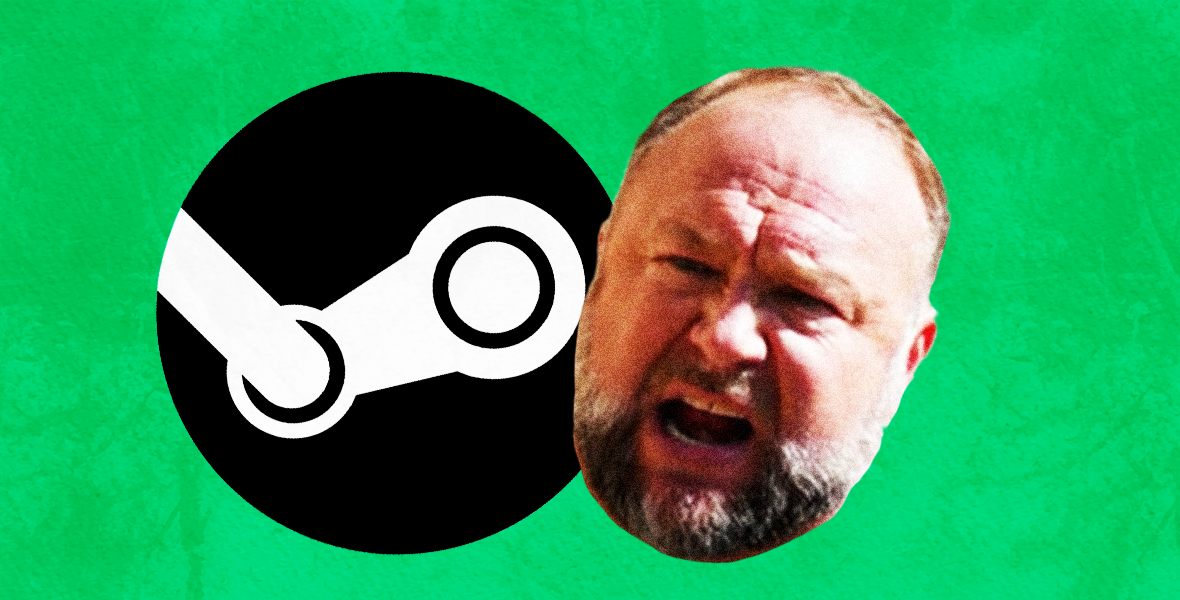Following his trial for defamation of the families of the children and school staff killed in the Sandy Hook massacre, conspiracy theorist Alex Jones is using Valve Corp.’s Steam, the world’s largest digital distribution platform for PC games, to sell an Infowars-themed video game. Jones claims to have earned hundreds of thousands in revenue from the video game, yet he has refused to pay the Sandy Hook families. Alex Jones: NWO Wars also mirrors and cartoonishly repackages the conspiracy theorist’s regularly violent, hateful rhetoric despite the platform’s policies against hate speech.



To the best of my knowledge Valve allows basically everything that’s not outright illegal. They aren’t nearly as much of a “good” corporation as they’re often framed as. They’ll happily provide a platform for and take their 30% from anyone, including racists, misogynists, homophobes, etc.
Or maybe they don’t see it’s their place to gatekeep the store based on their own morals. If you start - where do you draw the line? Some examples like such games may be obvious, but there will be a lot more that are less so.
If people disagree with the message - nobody forces them to buy it after all and you can block any game from even showing up for you in the store, in my opinion it’s plenty enough from the valve’s part. I’d rather be the judge myself as to what I want and what I don’t want to see and play, rather than any corporation.
I find the “where do you stop” argument to be riddled with holes. Laws are essentially written to explicitly outline boundries and moderation policies are basically just internal laws. Like Canadian law has very specific laws regarding what constitutes hate speech, here is what that looks like.
First you outline protected grounds. In Canada this is race, national or ethnic origin, colour, religion, age, sex, sexual orientation, gender identity or expression, marital status, family status, genetic characteristics, disability and conviction for an offence for which a pardon has been granted. (note: pardons are only available via democratic votes or through appeals in Canada)
There’s a stage where you determine what context stuff is in. Like whether it is being performed publicly or privately but marketing a video game is definitely publicly so in tgis context we can skip to it’s last part where you explicitly define hate speech. Hate speech is rhetoric that :
Describes group members as animals, subhuman or genetically inferior
Suggests group members are behind a conspiracy to gain control by plotting to destroy western civilization
Denying, minimizing or celebrating past persecution or tragedies that happened to group members
Labelling group members as child abusers, pedophiles or criminals who prey on children Blaming group members for problems like crime and disease
Calling group members liars, cheats, criminals or any other term meant to provoke a strong reaction including usage of known slurs in the context of intended harm to group members.
These rules likely wouldn’t touch some hateful rhetoric that sneaks through under the wire disguised in very abstracted metaphor but it creates a pretty distinct pass fail bar that would catch explicit hate speech on their platform.
By those rules we can’t even criticize Hamas or Houthis
This is too bad, but yes. They are like any other large corporation, I suppose – motivated primarily by greed.